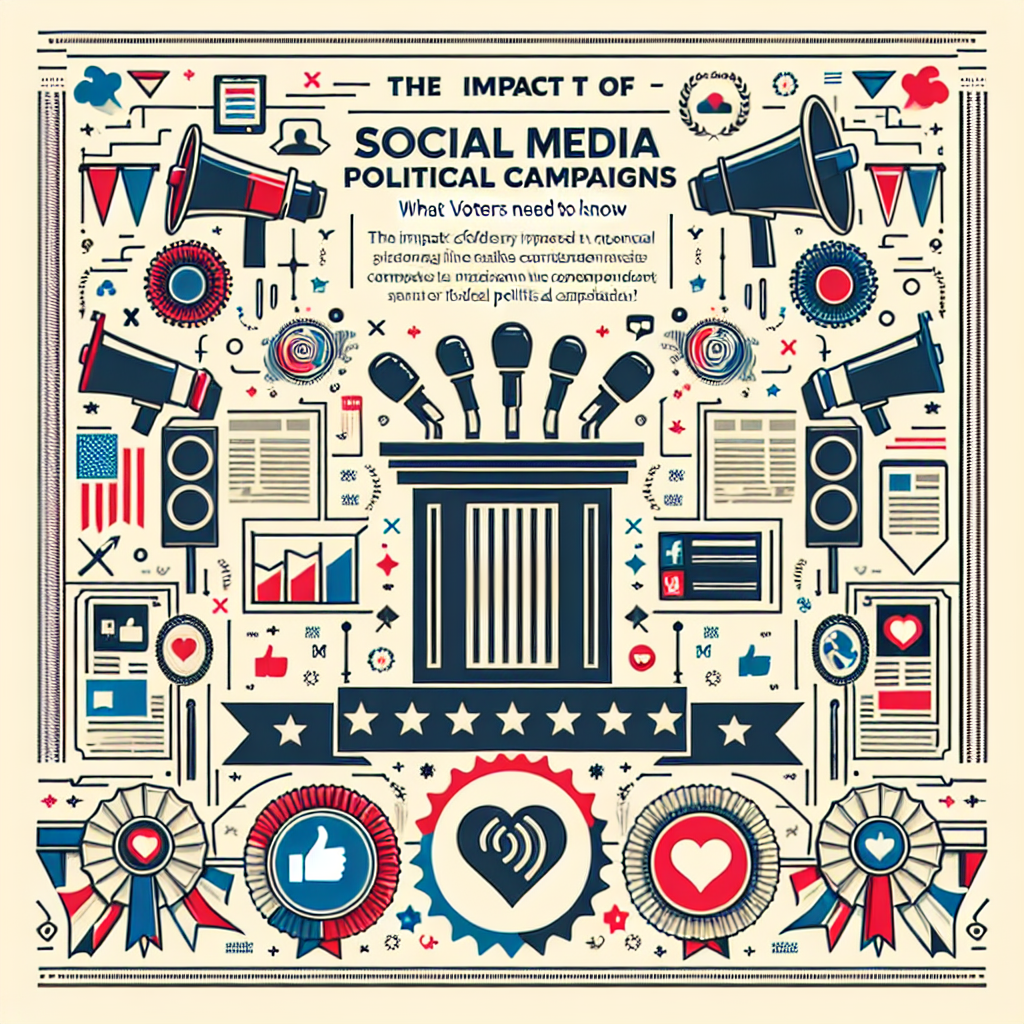Social media has revolutionized the way political campaigns are conducted and how voters engage with their candidates and issues. Platforms like Facebook, Twitter, Instagram, and TikTok have become vital tools for communication, outreach, and influence in contemporary politics. Understanding this impact is essential for voters navigating the increasingly complex landscape of modern political campaigns.
1. The New Campaign Playground
Social media is no longer just an adjunct to traditional campaign strategies; it has become the core of modern political outreach. In the run-up to elections, candidates utilize these platforms to stake their positions, mobilize supporters, and counter opponents. In fact, social media allows candidates to bypass traditional media gatekeepers, enabling them to communicate directly with voters, share their messages, and manually curate their narratives.
The 2020 U.S. presidential election demonstrated the power of social media, as it played a crucial role in shaping public perception, facilitating grassroots movements, and galvanizing voter turnout. Platforms that once emphasized personal connections have evolved into campaign tools that manipulate vast networks and algorithms, allowing messages to reach millions almost instantaneously.
2. Targeting and Micro-Influencing
One of the most significant advancements that social media has brought to political campaigns is the ability to target specific demographics with tailored messages. Advanced algorithms can analyze user data to determine individual preferences and interests, allowing campaigns to design their outreach efforts accordingly.
This micro-targeting can be empowering for voters, as they are more likely to see candidates addressing issues that matter to them directly. However, it also raises concerns about the ethical implications of such practices, including the spread of misinformation and the potential for manipulation by malicious actors.
3. The Role of Influencers
Social media influencers have emerged as pivotal players in political campaigns. Candidates often collaborate with popular figures to endorse their platforms and reach younger voters. These endorsements can be more relatable and convincing, as they come from trusted personalities rather than conventional politicians.
Influencer campaigns have the potential to mobilize new voters, yet they also increase the risk of spreading biased information and diluting substantive political discussions. It’s essential for voters to critically evaluate the information shared by influencers and understand the motives behind these endorsements.
4. Disinformation and Misinformation
One of the darker sides of social media’s influence on politics is the rampant spread of misinformation and disinformation. False information can be disseminated rapidly and widely, leading to confusion and misguided beliefs among the electorate. Campaigns may deploy bots, trolls, and fake accounts to manipulate public opinion, complicating the task of discerning facts from fiction.
Voters must remain vigilant, relying on credible sources and fact-checking initiatives to navigate the deluge of information. Understanding that not everything shared on social media is accurate or objective is crucial for maintaining an informed electorate.
5. Amplifying Grassroots Movements
On a more positive note, social media has empowered grassroots movements, enabling individuals and organizations to mobilize support for causes that may have been previously overlooked. Activists use social media to rally support, organize protests, and communicate their message, often reaching far beyond local communities.
This democratization of political discourse can lead to increased engagement among previously disenfranchised groups, promoting a more inclusive political landscape. However, as grassroots movements gain visibility, they must also be aware of potential co-optation by larger political campaigns.
6. The Impact on Political Debates
The format of political debates has also evolved in the age of social media. Candidates must now prepare not only for televised confrontations but also for rapid real-time reactions and commentary that occur across various platforms. This immediacy can shape public perceptions within moments, forcing candidates to think on their feet and adapt their messaging to suit the prevailing sentiments online.
Voters should recognize the high stakes involved as candidates navigate this new terrain, where a single misstep can lead to lasting reputational damage that can be amplified by viral sharing.
Conclusion: Educating Themselves
As social media continues to become an integral part of the political landscape, voters must equip themselves with the tools to discern fact from fiction. Engaging with a diverse array of credible information sources, questioning the motives behind social media campaigns, and staying informed about the mechanisms at play are essential for making educated electoral choices.
In this era of rapid communication and information sharing, every voter has a role to play. By understanding the implications of social media on political campaigns, they can better engage with the democratic process and hold their leaders accountable. Ultimately, it falls to voters to navigate this brave new world wisely and ensure that their voices contribute meaningfully to the political discourse.
